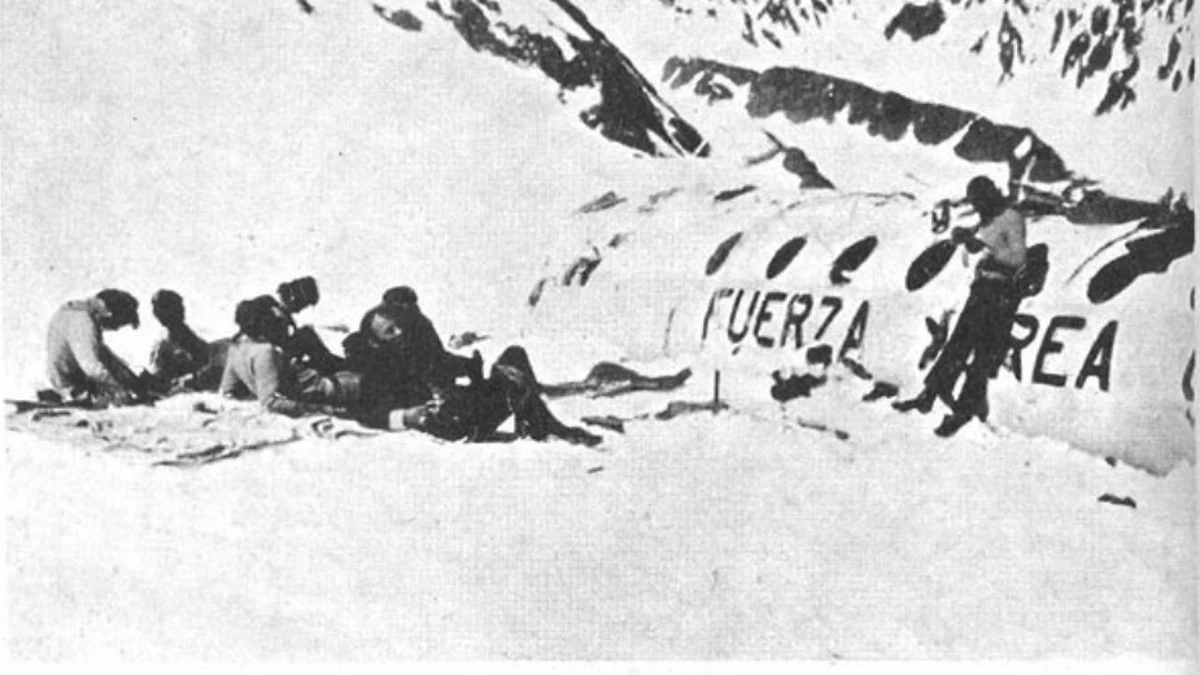
On October 13, 1972, Friday, the Fairchild FH-227D, a charter flight that had departed from Montevideo to Santiago the day before, crashed in the Andes mountain range. Of the 45 people who were on board the aircraft, including crew and passengers, 29 survived the accident in what is known as the ‘valley of tears’ and only 16 managed to stay alive when, More than two months later, on December 23, they were rescued.
That tragedy, which became known worldwide over the years, gave rise in 2023 to the latest film by Spanish filmmaker JA Bayona. ‘The Snow Society’, a feature film based on the book of the same name and written by the Uruguayan Pablo Vierci, perfectly portrays how this group of people lived trapped in one of the most inaccessible and hostile environments on the planet, forced to resort to to extreme measures to stay alive .
Roberto Canessa, one of the survivors of the aforementioned tragedy, has attested to this. This Wednesday, he granted an interview with the Cadena SER program ‘El Larguero’ to evaluate the film and remember how it managed to save itself after one of the most shocking catastrophes that recent history has left us. “When I saw the film I saw different things from what I had experienced in the mountains. There are many things that I did not find out because I was walking in the mountains,” explained the cardiologist.
Along with Fernando Parrado, Canessa was one of the two survivors who crossed the mountain range until they found a mule driver whom they could ask for help, more than two months after the accident, to finally be rescued. Previously, and during that journey, both they and the rest of the survivors They were subjected to the harshest conditions: “The fascinating thing about history is that people think that the most terrible thing was having to eat the dead. There is a way of seeing history for those outside, and another for those of us who were the Snow Society.”
We feel the deepest poverty that a human being can have.”
“When someone died, not only did you feel sorry for them, you also felt sorry for yourself, because you were next on the waiting list. All this metamorphosis that we had to do to transform ourselves into survivors of the poorest in the universe…” , the health professional recalled in that interview in SER, making a simile with the situation of the collectors: “They eat what they find, but there was nothing to find there.. “We feel the deepest poverty that a human being can have.”
Likewise, the premiere of this film served to leave behind the distance between some of the survivors, as highlighted by Eduardo Strauch, another of the 16 Uruguayans who lived 72 days in the mountain range. “The greatest virtue of the film is that It has brought us together again and made us find our families. of those who were on that plane, that there was a kind of rift, until now, that was settled over time but distances remained,” Strauch explained this Tuesday at a conference in the city of Guadalajara, capital of the state of Jalisco, western Mexico.
The Pope’s telegram
Strauch recalled that upon returning to Montevideo, after the rescue by the Chilean authorities, he wanted to go to console the mother of Marcelo Pérez del Castillo, captain of the rugby team that was traveling to Chile for a competition and who died under the snow, but She did not want to receive him: “It was very painful, when we arrived in Montevideo I thought of running to Marcelo’s house to hug his mother, because we adored each other and He never wanted to see me again, he couldn’t bear the idea of seeing me without Marcelo by my side.“.
“When the film was released, Marcelo’s sister appeared, we gave each other a hug and took up the relationship from 50 years ago,” Strauch celebrated. This survivor He was one of those who encouraged others to eat the flesh of corpses to stay alive and assured that from the moment he assumed it would be necessary to leave the mountain range alive, he never felt guilty again.
Thus, he recalled that after the rescue they received a telegram from Pope Paul VI in which he exalted the value of life, without judging what the young people did to survive and many media outlets considered it cannibalism. “Many people suffered a lot, of us families, many were waiting for what the Pope would tell us, that He sent a telegram saying that what we had done was good; “If he had said that we had acted badly, it would not have affected me in any way, my conscience was completely clear, I was alive,” he concluded.
Source: Lasexta
Bruce is a talented author and journalist with a passion for entertainment . He currently works as a writer at the 247 News Agency, where he has established himself as a respected voice in the industry.











